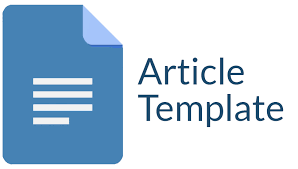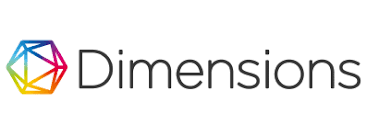The The Behavior of PPNI Professional Organizations that Fire Their Members Is Seen from the Point of View of Law and Society
Abstract
Indonesian National Nurses Association (PPNI) is an organization that houses all nurses in Indonesia. PPNI aims to improve and develop the knowledge, skills of nursing practice, dignity, welfare and ethics of the nursing profession, strengthen unity and empower nurses. This research aims to find out the various community responses regarding PPNI policies in firing its members who are allegedly not in accordance with the Ppni Articles of Association / Household Budget (AD / ART). It happened because the dismissal of PPNI members did not hammer out the correct procedures. This research method uses qualitative methods. Qualitative method is a research method that produces descriptive data in the form of words obtained from the results of surveys addressed to the public to find out various responses about PPNI policies that fire their members by not going through the correct procedures. Based on research, 82.8% of respondents were aware of the policy governing the dismissal of members in AD / ART. While 17.2% were not aware of the policy. 72.4% argued that the PPNI should not dismiss its members disrespectfully, while 27.6% thought the PPNI should dismiss members disrespectfully. 86.2% stated that PPNI has become a good organization while 13.8% do not agree with it. 82.8% did not accept the dismissal of members disrespectfully while 17.2% responded to the statement. 62.1% stated ppni behavior in accordance with AD / ART while 37.9% stated not in accordance with AD / ART. 69% argued that the professional ethics of PPNI organizations are classified as good so far while 31% stated not to be classified as good.
References
https://www.jawapos.com/nasional/hukumkriminal/08/09/2017/digugat-anak-buah-persatuan-perawatdituntut-rp-3-miliar/, accessed on November 01, 2021 at 11:06 AM
https://projasaweb.com/pengertian-organisasi/, accessed on December 21, 2021 at 02:36 PM
https://penerbitbukudeepublish.com/pengertian-organisasi/, accessed on December 21, 2021 at 02:40 PM
https://ppnijateng.org/wp-content/uploads/2019/07/6.-013-SKPO-Disiplin-Organisasi.pdf, accessed on December 21, 2021 at 02:56 PM
Trang, Dewi Sandy, "Organizational leadership style and culture influence on employee performance", Journal of EMBA: Journal of Economic Research, Management, Business and Accounting 1 (3), 2013
Hariandja, Marihot Tua Effendi, "Organizational behavior understands and manages behavior in organizations", Unpar Press, 2016
Nasir, Andi and Purnomo, Edi, "Influence of The Application of The Code of Ethics of Nursing to Nursing Services", Scientific Journal of Permas: Scientific Journal of STIKES Kendal 9 (4), 335-342, 2019
J PP PPNI, "Code of Ethics of Nursing", Lambang Panji PPNI and Nursing pledge, 2000
Saudah, Noer, et al., "INTRODUCTION OF THE CODE OF ETHICS FOR WRITING SCIENTIFIC PAPERS AS AN EFFORT TO IMPROVE STUDENTS' ABILITY TO COMPILE PAPERS", SELAPARANG Journal of Community Service 5 (1), 78-82, 2021
Copyright (c) 2022 Journal of Complementary in Health

This work is licensed under a Creative Commons Attribution-ShareAlike 4.0 International License.
Authors who publish with this journal agree to the following terms:
- Authors retain copyright and grant the journal right of first publication with the work simultaneously licensed under a Creative Commons Attribution License that allows others to share the work with an acknowledgement of the work's authorship and initial publication in this journal.
- Authors are able to enter into separate, additional contractual arrangements for the non-exclusive distribution of the journal's published version of the work (e.g., post it to an institutional repository or publish it in a book), with an acknowledgement of its initial publication in this journal.
- Authors are permitted and encouraged to post their work online (e.g., in institutional repositories or on their website) prior to and during the submission process, as it can lead to productive exchanges, as well as earlier and greater citation of published work












